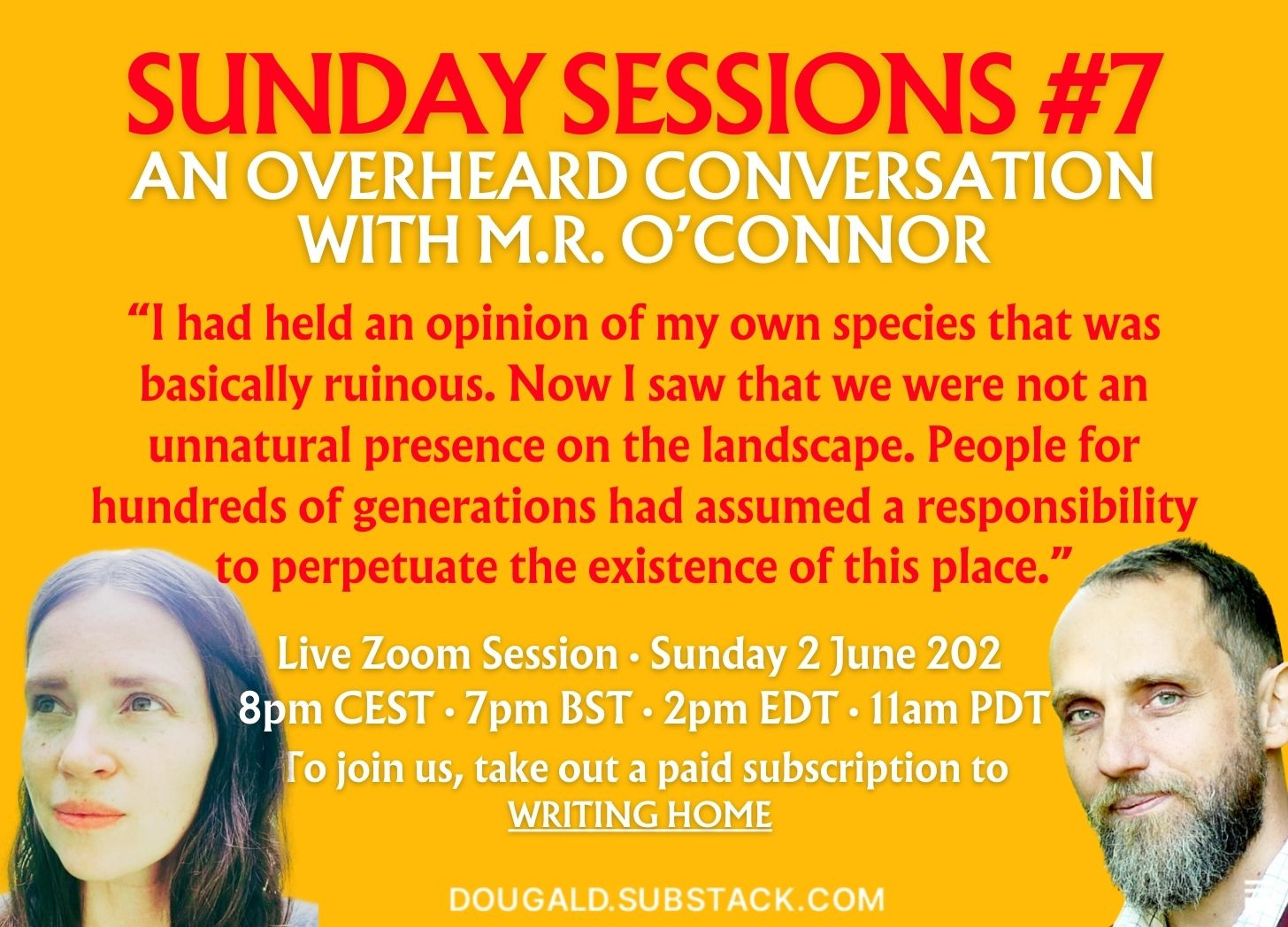In the opening chapter of her book Ignition: Lighting Fires in a Burning World, M. R. O’Connor travels to Nebraska to take part in setting a fire. Up to now, her training as a wildland firefighter has taken place online: she completed the Work Capacity Test by speed walking around a park in Brooklyn with a backpack full of sandbags.
“Are you the journalist?” a woman calls and beckons her over. “I’m going to watch what I say around you!” Patty Carrick is smoking a cigar on the sidewalk outside the venue, joking with her friend Dan Kelleher. The pair of them turn out to be in charge of the crew that will burn 4000 acres of prairie over the next two weeks, and O’Connor ends up adopting them as her role models:
As I listened to their banter, an impression began to form. Dan and Patty seemed so… happy. It startled me, this feeling that they knew or had something I didn’t. What was it?
Who holds the knowledge that will count in a burning world? And how can anyone be happy in such a world? These are questions that run below the surface of Ignition, acknowledged in passing, as when she asks in the introduction, “Is it possible that many of our current environmental problems are at their root epistemological problems?” Or when, a couple of pages later, she mentions that “Some of the people most dedicated to the practice of fire-lighting live in America’s heartland, far from the stereotypical centers of environmental conservation or climate change concern.”
The book is a gripping piece of storytelling. For a couple of chapters in the middle, fighting megafires in the hottest summer in California since records began, it grips you like a horror novel, or a prequel to The Road. Yet as it goes on, O’Connor makes good on her opening promise to tell not only a “more complicated and fascinating story” about fire than we are used to hearing, but also a more hopeful one. Reading it, I had a sense that she was changed by this journey into working with fire, that it moved her beyond the place of fear and paralysis which is where the knowledge of climate change can often leave us.
The book reached me because O’Connor had read At Work in the Ruins and felt an affinity with what I had written – and the feeling runs both ways. I think the story she’s telling illuminates what the work that is called for looks like, and shifts the focus of what kind of knowledge will be called for and who is carrying that knowledge, in ways that unsettle the geographical and political identities along which lines are often drawn up when it comes to the climate crisis.
So I’m looking forward to welcoming M. R. O’Connor to the Sunday Sessions this weekend, learning more about the journey behind the book and where it has taken her. This will be a chance to pick up some threads from earlier in the season, especially from the conversation with
about the role of “land change” within the story of climate.If you’d like to join us live for Sunday’s conversation and bring questions of your own, the Zoom call is open to anyone with a paid subscription to this Substack. (And if that’s an obstacle, but you really want to join us, then let me know.)
Full details are below the paywall on this post. As usual, the full recording will be released to paid subscribers – while the first forty minutes will be available to everyone.
Zoom details for Sunday Sessions #7 with M. R. O’Connor
The call lasts an hour and starts at 8pm CEST which is 7pm BST, 2pm EDT or 11am PDT. Use the Zoom link below to join the call:

